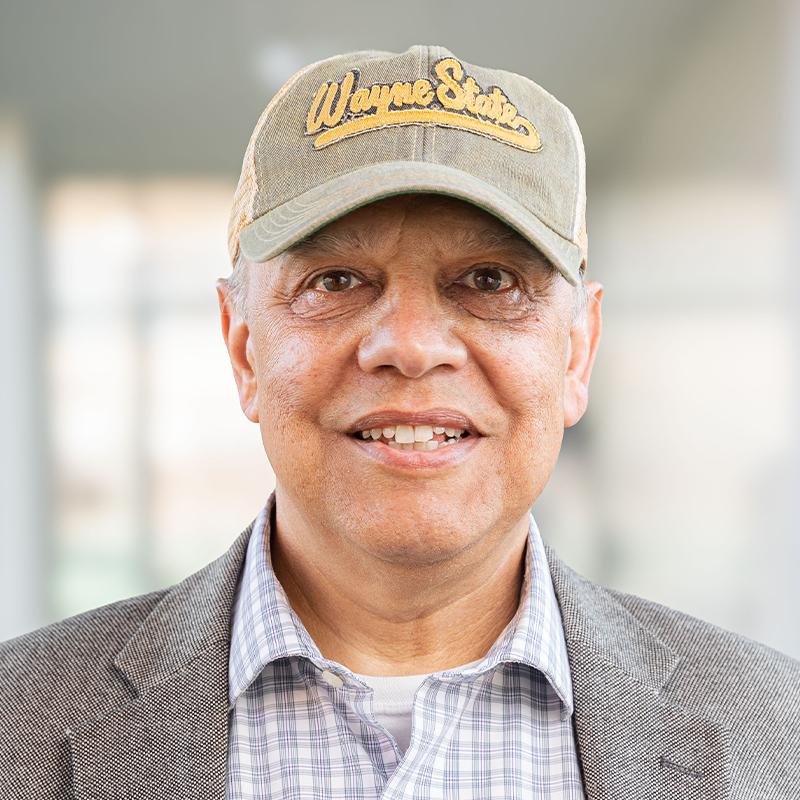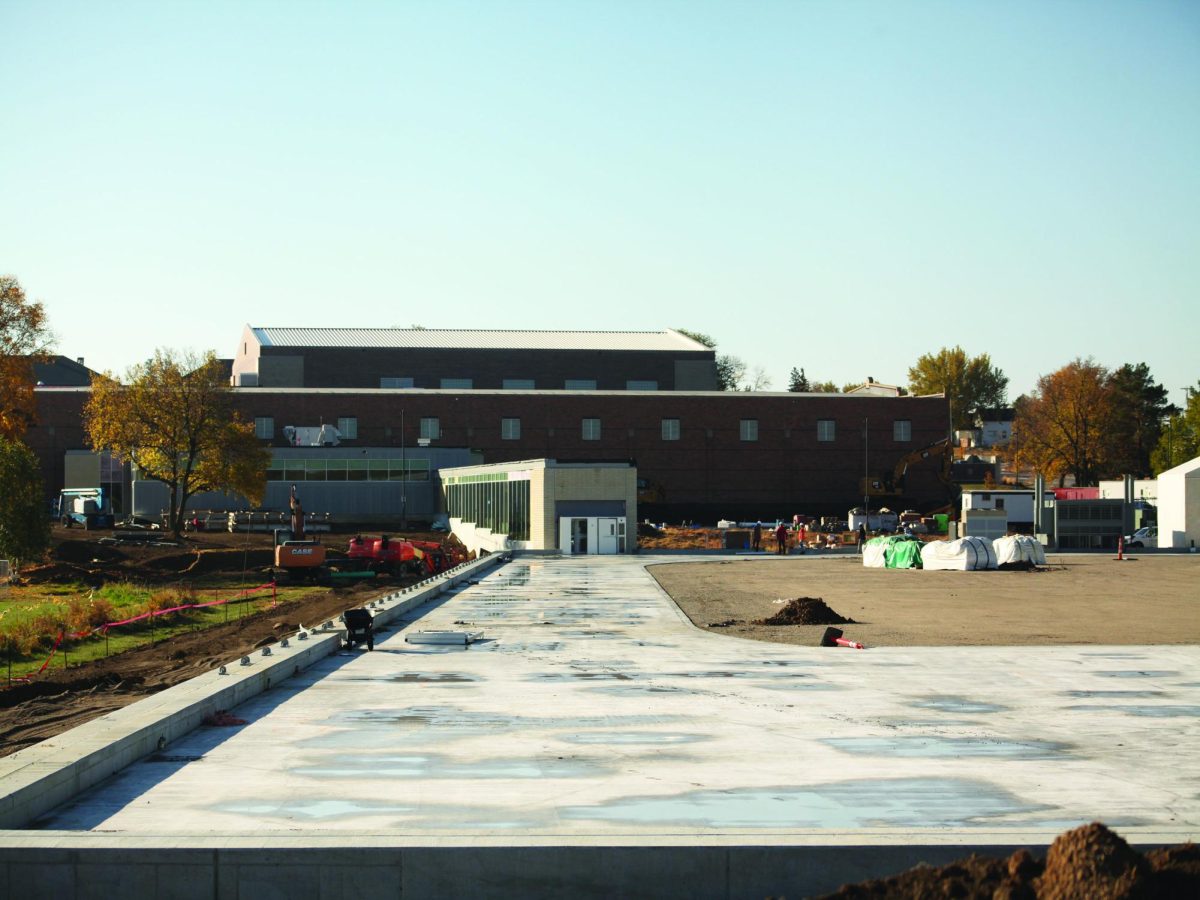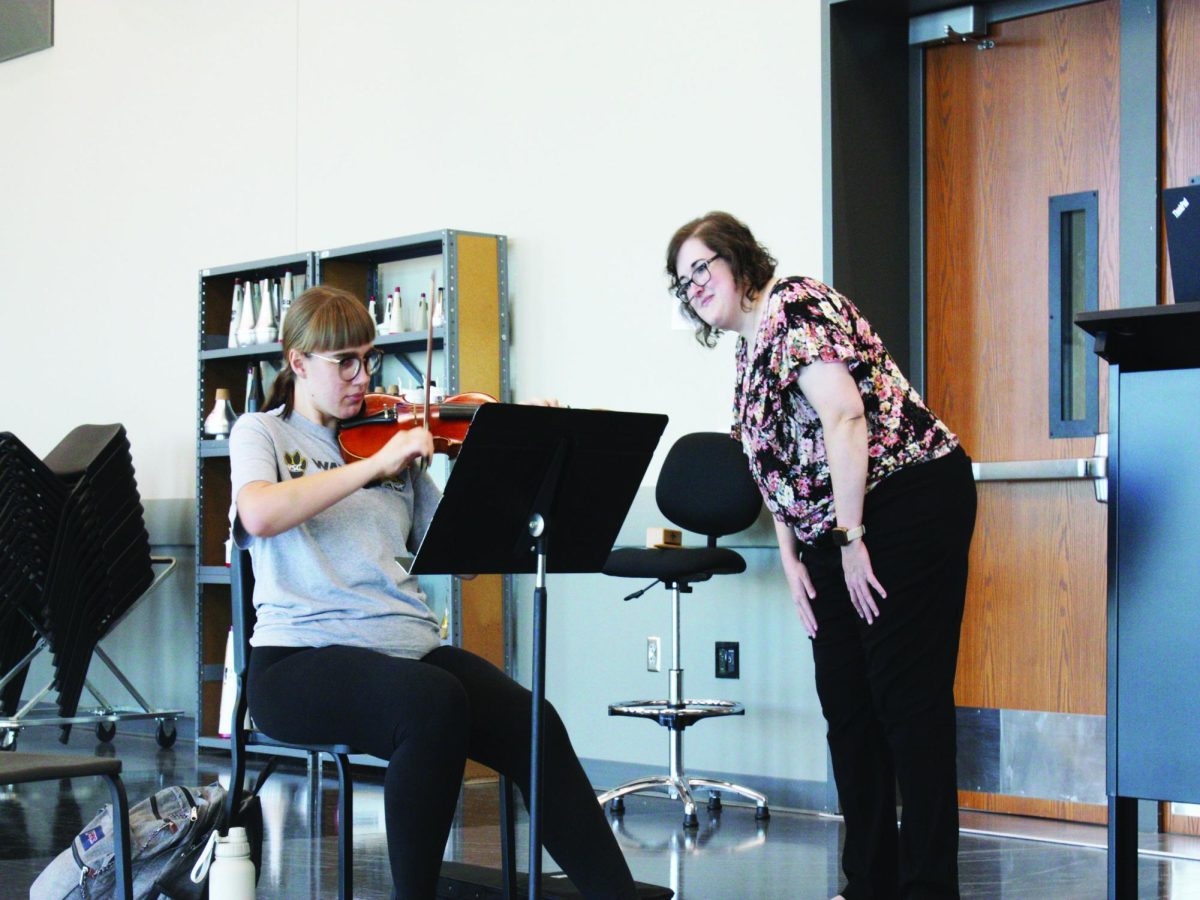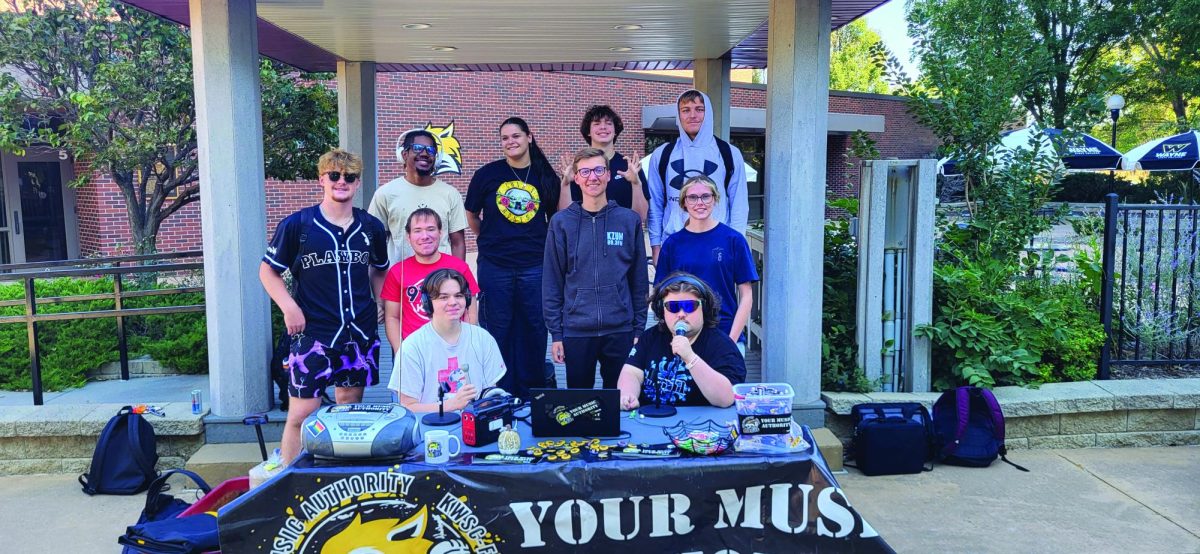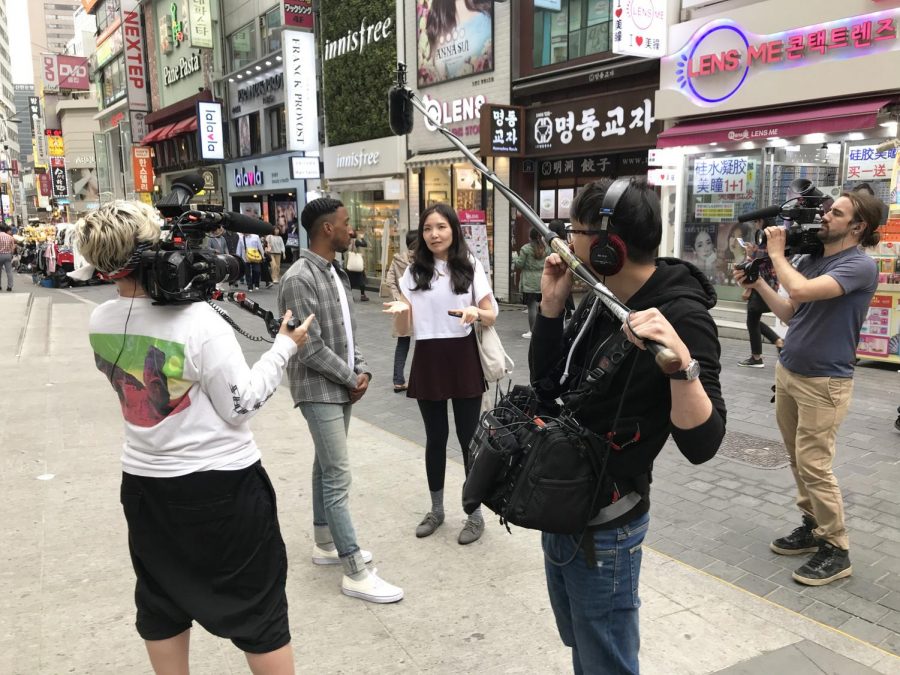VICE News journalist shares his story with The Stater
Lee Adams, the host and producer of “VICE Minority Reports,” is interviewing an individual for his show. This show is a documentary about underrepresented individuals in unexpected places.
February 20, 2019
Lee Adams is the host and producer of “VICE Minority Reports,” a digital documentary series about underrepresented individuals in unexpected places. The first episode of the series, “Being a White Student at a Historically Black College,” has garnered more than 4.8 million views since its release in June 2018.
The series consist of seven episodes distributed over two seasons. In an interview with VICE media, Adams said “Minority Reports” is an effort to grant representation, while also starting a conversation about complicated topics often avoided by many people, such as race and privilege.
Aside from hosting the VICE “Minority Reports,” Adams is also the creative producer for VICE.com, developing and piloting new series along with serving as a video host and correspondent for VICE.com. I had the chance to speak with Adams recently and learn more about his life and how he got into journalism.
Tarik Urvina: Tell us more about your background.
Lee Adams: I grew up in Virginia, I went to the University of Maryland and was actually a Sociology major. I got into journalism-slash-filmmaking because of a class that I took while I was an undergrad that was a film study class. I remember going to that class and experiencing everything that I liked and cared about meet – my love of music, visuals and the ability to create something that can speak to people. That’s when something clicked, and I decide that this is what I want to chase down.
Urvina: Did you always want to be a journalist?
Adams: Honestly, I had no idea what I wanted to be when I was younger. I just knew that I wanted to work and get into filmmaking. I didn’t always want to be a journalist, I kind of just fell into to it and realized I found something I’m really good at and it worked out.
Urvina: What was your first journalism job?
Adams: My first job at journalism I would probably say was at NBC News. The first time I took the role of producing, having more control over the creative aspects over the things that I was working on was at my first job at VICE, where I was producing on a show called “Weediqutte.”
Urvina: How did you get your job at VICE?
Adams: Through a mutual friend I got this information about Alex, a line producer at VICE. A line producer is a person who is responsible for the financial and staffing for all these shows. I emailed Alex literally three or four times a week for two months, asking him just to meet me for a coffee. I wasn’t asking him for a job, I was just asking him to sit down with me, talk to me and explain what it takes for me to get my foot in the door. I was really hungry and ready to do whatever it took to get this job, because I was a huge fan of the company.
I discovered VICE when I was in college, in my sophomore year. When I saw their message of storytelling and what they did, I knew this is the only place where I want to work. I emailed Alex over and over again and then finally the day that we sat down for a coffee, I had an interview with one of the senior producers of the VICE on HBO show. After four more trips to New York and four interviews later, I got a job as an AP (Associate Producer) on the show “Weediquette,” which is the show that I worked on. That’s how I started my first three years at the company.
Urvina: What is your favorite story you have done and why?
Adams: The first story that I have ever directed which was for a story on “Weediquette.” It was about urban PTSD (Post-Traumatic Stress Disorder) and self-medication in the form of marijuana. That one is really important to me because it was like the first thing that that I got to direct, the first thing that I was running the show on. It was a story that was very important to me.
Obviously, my show “Minority Reports” called out representation and kind of talks about issues that are directly related to people who are not the majority in this country or others. That particular “Weediqutte” episode about urban PTSD and self-medication was my first chance to tell a story about brown-faces that was really important to me.
I look up to filmmakers like Spike Lee, people who champion brown faces in stories that matter to black people and minorities in general. Having the opportunity to be able to contribute to the media landscape and produce something people won’t talk about; the way black people and brown people suffer of extreme poverty and extreme violence in places like Compton and the south side of Chicago.
If you do write off this entire group of people as a lost cause – that they are dealing with PTSD that rates higher than black war veterans – being able to tell this story is something that was really important to me and what I am still really proud of.
Urvina: What is the most difficult story assignment that you’ve completed?
Adams: The one I have wrestled with the most is the first episode of “Minority Stories.” The first episode we go and interview a white student at a black college. I was really iffy about doing that because I thought I was like doing a tremendous disservice to these institutions and the individuals that attempt them.
Black schools barely get any attention. Black people in the mainstream media barely get their narrative told and barely get to drive their narrative. I felt like I’m contributing to this problem, I’m going to this black stage to only talk to and about one white student.
I struggled with that because I thought I’m part of the problem that I recognized. I think we were able to approach it and do it in a way where we allow the ideas and perspective of people who build those universities.
Urvina: How do you feel about the state of journalism in the United States?
Adams: This is a hard question. Obviously, I value the work of my colleagues, both in print journalism and visual journalism. I think that there are a lot of parties and a lot of inherent bias built into the media right now. I can only believe half of what I hear in this station and half of what I hear on another one.
Different press outlets are so heavily mute in one direction or the other as it pertains to politics, the president or what’s going on in the world. It is unfortunate that you don’t have more valid and fairer journalism, the whole phenomena about “fake news” or “alternative facts,” made finding reliable press outlets harder.
I got a CNN alert on my phone saying Donald Trump is obese. That’s not news! Why is that a news alert that I’m getting. CNN would have never sent that out about Barack Obama. They would have never said ‘Obama is gaining 40 pounds, what does that say about our country?’
Urvina: What sources do you trust to provide accurate news?
Adams: The reporting that my colleagues do here at VICE is spectacular, that’s why I wanted to work here in the first place. I read a lot of New York Times, Washington Post and Wall Street Journal.
I still rely on print media to get a lot of my news. There is a lot less spice than on the big cable networks such as CNN, Fox News and MSNBC.
I find myself more turned off by, not only how they cover the news, but also the slant that they give to it. I’m just not interested in that any more.
Urvina: Who is your favorite journalist, either past or present?
Adams: Ed Bradley was a huge influence for me. One of my mentors here at VICE and the host of the first show that I worked on, Krishna Andavolu and, truthfully, my dad.
My dad was a journalist too, an anchorman for 30 years. I kind of grew up in it, but never saw myself being a journalist as a kid. As I got older, I realized I had more of my dad’s gift then I gave myself credit for. He had such a huge impact on me.
Urvina: Do you have any advice for aspiring journalists hoping to make it to a media company like VICE?
Adams: Read a lot, as much as you can, absorb all the information that you can get your hands on. You have to be really hungry and then you have to be better than anyone else. You need to approach it competitively and want to be a better journalist to get better stories and better access than anyone else. You need to have that fire in you, to really want it and aggressively chase it. That was the only way I knew I would get a job here, and the way I ended up finding a job was by being hungry.

